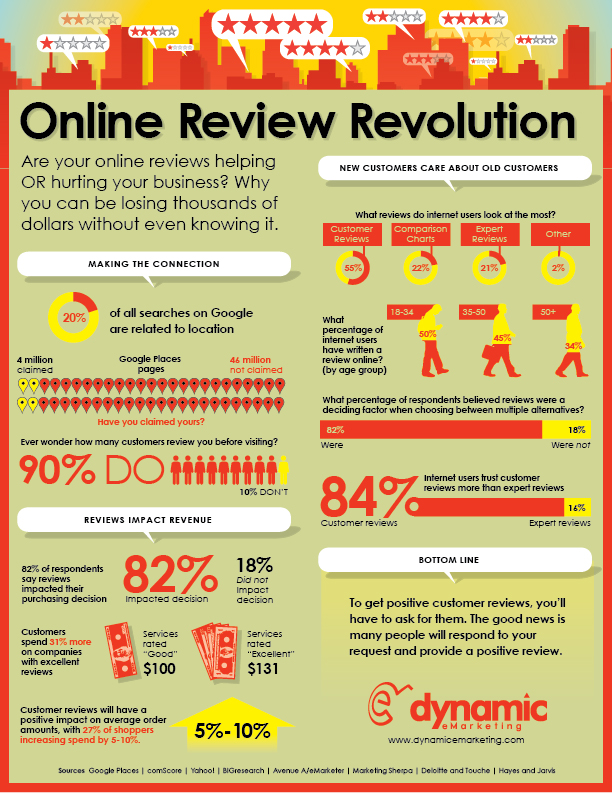There are many popular online reviews sites out there. Yelp alone has over 132 million monthly visitors and 57 million reviews. With the rise of smartphone ownership, finding business reviews on-the-go has never been more convenient. This is a mixed blessing for small businesses. A great online review can bring more customers in.
Do online reviews really make a difference? Let’s skip right to the punch line here, with an emphatic yes. Consumers absolutely use reviews as part of their online research efforts — and the quality of the reviews materially impacts businesses.

Just consider: 89% of consumers viewed online sources of product and service reviews as trustworthy — and another 80% have changed their minds about a purchase based solely on the negative reviews they read.
In 2011, 85% of those surveyed said they’d be more likely to purchase if they could find additional recommendations online.
Read also:- “ Social Maturity Index (SMI)”
A one-star difference in a restaurant rating impacts revenue between 5% and 9%. It’s likely that every business will, at some point, get a few negative reviews — in fact, a couple of these in a large sea of good ones is often convincing evidence that on the whole, your review rating can be trusted. People generally understand that everyone makes missteps from time to time — and they are forgiving. Maybe your front-office person had a bad day.
The best way to address these online reviews isn’t always in a messy or public argument with the customer. Consider taking action with the following options: Try reimbursing the customer so they can have a better experience and ask them to remove or revise their review.
You should take charge of your business page on Yelp. Become an active member on the site and respond to customer reviews to show that you truly care about how your business is run.
Wait it out since most people don’t navigate past the second page of reviews.
Consider reassessing your customer service or products, for example, do quality tests and ask others if your hamburgers really do taste like road kill.
Not all negative comments have bad outcomes, however. There was one website that had only positive reviews for their products and their sales suffered because it wasn’t deemed credible. Another study even showed that fewer than 25% of online shoppers report that they are unlikely to purchase a product after reading negative reviews
The internet has revolutionized communications and that, in turn, is changing the way brands market to consumers. As websites like Yelp continue to grow in popularity, it’s important for companies to monitor and manage customer reviews with an online review strategy.
Here are some tips, according to data:
Ask happy customers to leave reviews
Existing customers, especially Promoters, have the undeniable power to grow your business. Make customer feedback an easy proposition for them, and consider timing carefully. “The best way to get reviews is to ask for them. And the best time to ask is when you finish the job and are with them” says Jeff Motter, CEO and chief marketing officer of East Bay Marketing Group.
Intercept negative feedback before it reaches online
This is the single best way to manage your online reputation and the complaint resolution process. An on-site customer feedback tool does a great job of alerting unhappy customers so you can address their concerns before they feel the need to go online.
Address negative reviews
Be prepared for negative reviews, because the truth is you can’t please everyone. What you can do however is address the situation and try and make it better as soon as possible. Responding to reviews in a professional manner is a great way to build goodwill and minimize the impact of a negative review.
Whether online or offline, you will get customer feedback — and hopefully, you also want it, because you know it’s an opportunity to strengthen your business. Just keep in mind that when someone comes into your store to complain, there might be a handful of other customers present. But online,consumers have an endless platform for airing grievances and a steady stream of people who will draw their own conclusions.
Read More:- Establishing Business Growth Strategy For Better Productivity